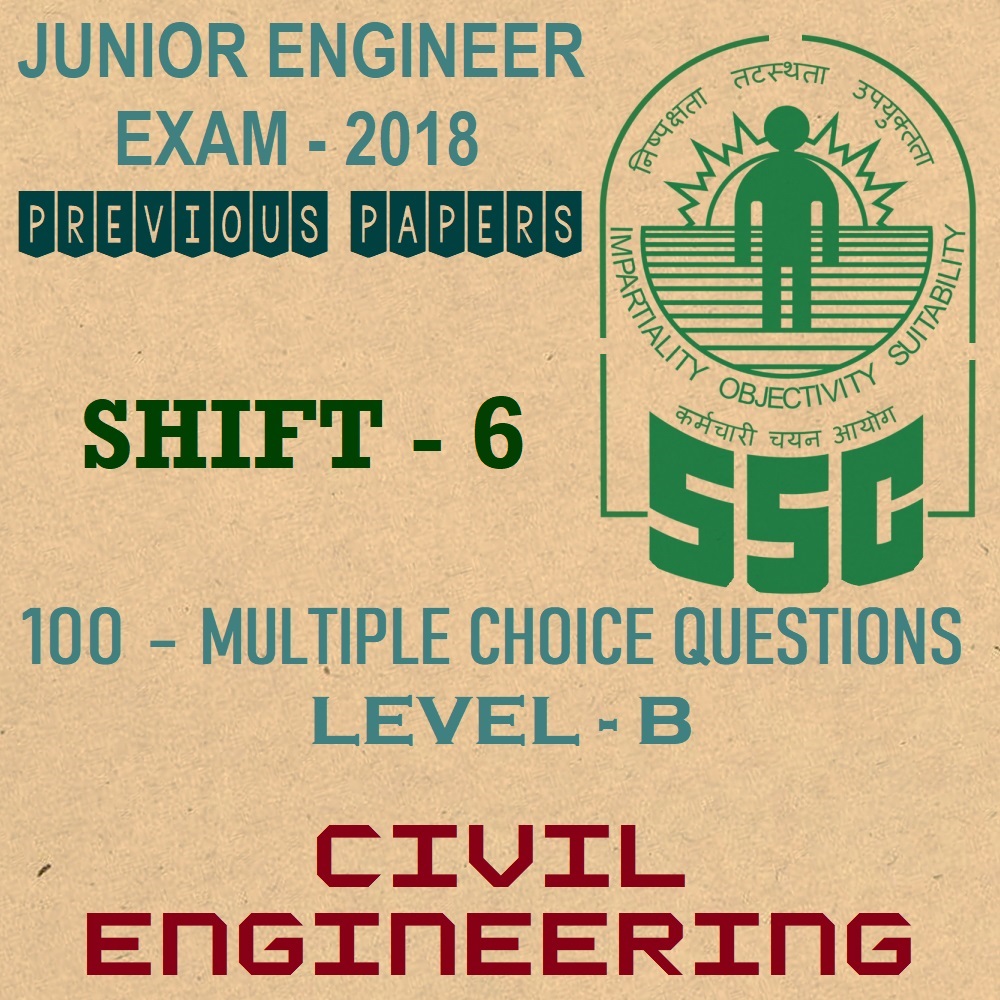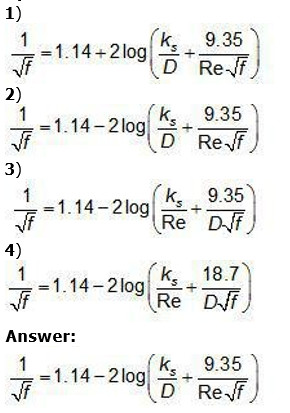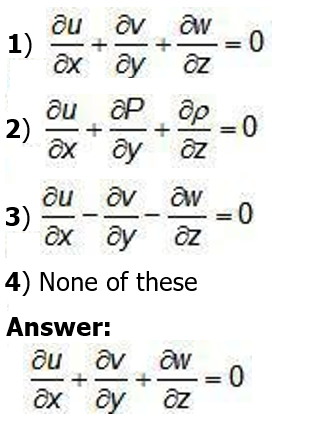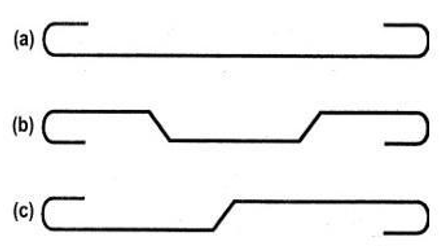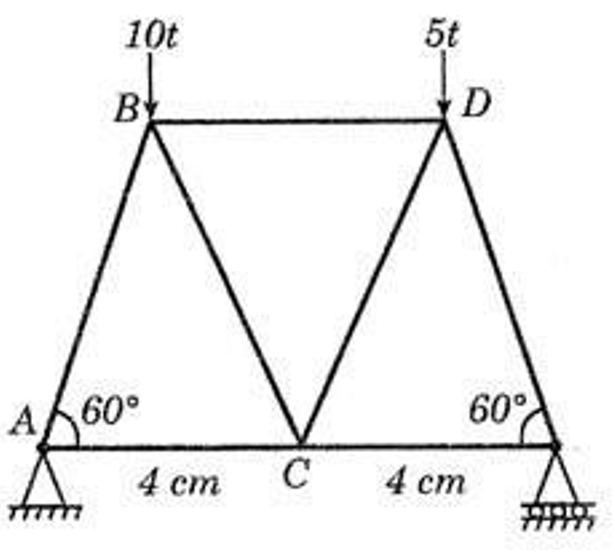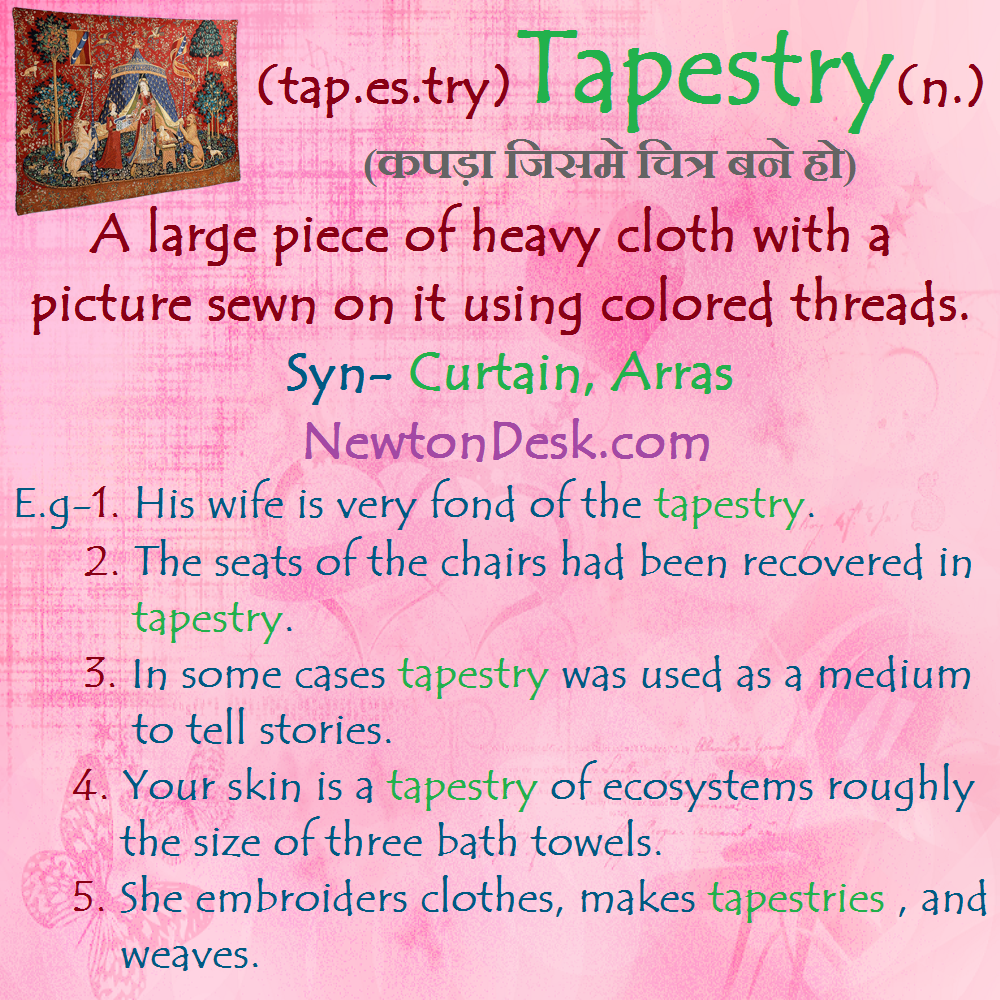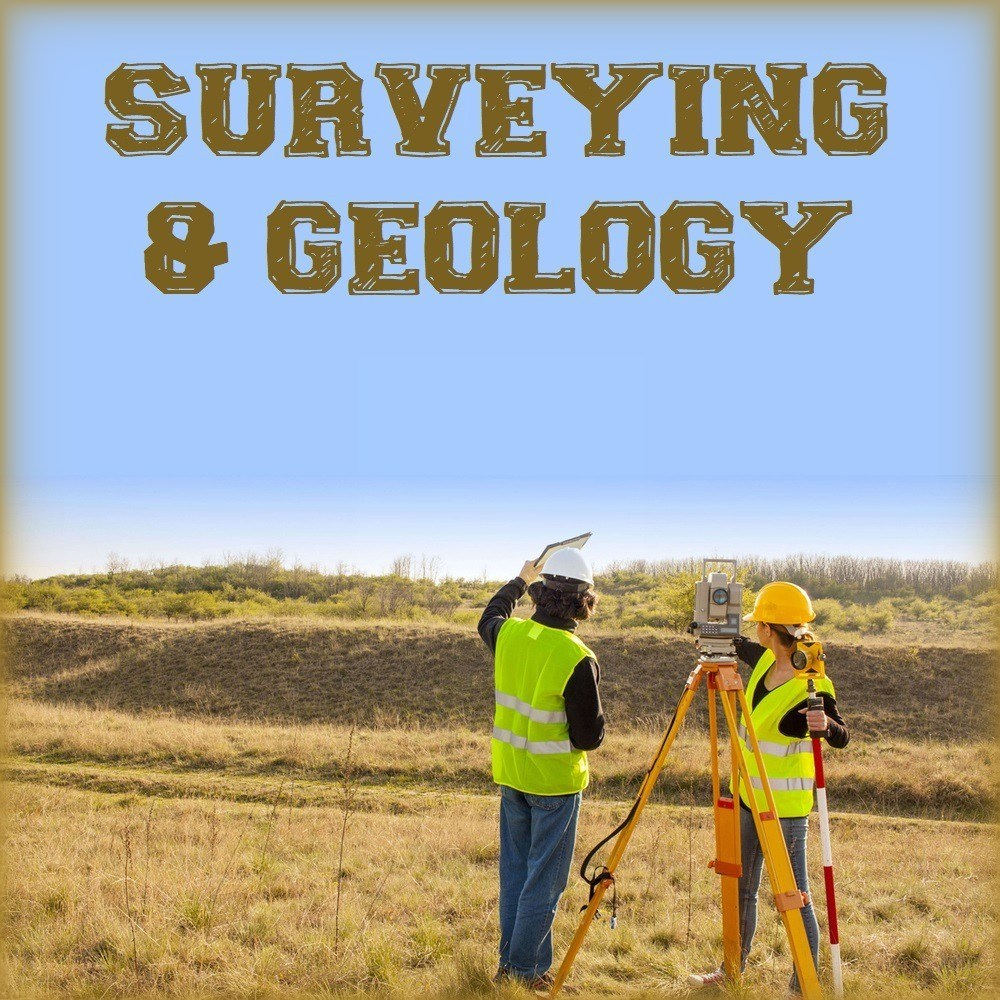SSC Junior Engineer Exam Paper – 2018 “held on 24 January 2018” Evening Shift (Civil Engineering)
Q1:- Which of the following defect appears due to presences of alkalies in the bricks?
Options:
1) Bloating
2) Black core
3) Cracks
4) Efflorescence
Answer: Efflorescence
Q2:- For which of the following process Boucherie process is used?
Options:
1) Manufacturing of bricks
2) Manufacturing of cement
3) Production of clay tiles
4) Treatment of green timber
Answer: Treatment of green timber
Q3:- What is the percentage content of asphalt in the cut-back asphalt?
Options:
1) 10%
2) 30%
3) 50%
4) 80%
Answer: 80%
Q4:- In which of the following test of bitumen Ring and Ball apparatus is used?
Options:
1) Penetration test
2) Softening point test
3) Viscosity test
4) Flash and fire point test
Answer: Softening point test
Q5:- The defect in timber that causes longitudinal separation of woods between the annular rings is known as_____.
Options:
1) Knots
2) Rind gall
3) Shakes
4) Twisted fibers
Answer: Shakes
Q6:- Which of the seasoning method is adopted for the rapid seasoning of timber on large scale to obtain any desired moisture content?
Options:
1) Air seasoning
2) Boiling process
3) Kiln seasoning
4) Water seasoning
Answer: Kiln seasoning
Q7:- What is the gel-space ratio of a sample of concrete, if the concrete is made with the 600 g of cement with the water-cement ratio of 0.65?
Options:
1) 0.012
2) 0.432
3) 0.678
4) 0.874
Answer: 0.678
Q8:- The concrete sample is cured at 15 degree Celsius for 28 days. If the origin temperature is taken as -11 degree Celsius, what is the maturity (degree Celsius days) of concrete sample?
Options:
1) 112
2) 308
3) 402
4) 728
Answer: 728
Q9:- The ingredient of paint which are used to hide the surface irregularities and imparts color is known as______.
Options:
1) Adultrants
2) Drier
3) Pigments
4) Solvents
Answer: pigments
Q10:- If the least lateral dimension of aggregate is less than 0.6 times of its mean dimension, the aggregate is classified as_____.
Options:
1) Angular
2) Flaky
3) Irregular
4) Rounded
Answer: Flaky
Q11:- Explosive required for blasting is measured in______.
Options:
1) Cubic meter
2) Explosive power
3) Energy released
4) Kilograms
Answer: kilograms
Q12:- Which of the following is the correct statement for length of the long wall as one move from earthwork to brick work in super structure in long and short wall method?
Options:
1) Its value decreases
2) Its value depends upon the length of the wall.
3) Its value increases.
4) Its value remains same.
Answer: Its value decreases
Q13:- Calculate an approximate estimate (Rs.) of the building with total plinth area of the building is 500 square meters. The rate of the plinth area is Rs. 3,000 per square meters. The costs of the water supply and contingencies are 7% and 5% of cost of construction respectively.
Options:
1) 1500000
2) 1650000
3) 1680000
4) 1870000
Answer: 1680000
Q14:- Calculate the cost of the plastering required for a wall of 4 m long, 3.5 m high and 300 mm thick, if the rate of plastering is Rs. 12 per square meter.
Options:
1) 101
2) 168
3) 336
4) 423
Answer: 336
Q15:- Which of the following is the unit of measurement for the sills of windows?
Options:
1) Cubic meter
2) Meter
3) Number
4) Square meter
Answer: Number
Q16:- Which of the following area is included in the plinth area of the building?
Options:
1) Area of the lofts.
2) Area of barsati at terrace level.
3) Cornices
4) Tower projecting above terrace level.
Answer: Area of barsati at terrace level.
Q17:- Which of the following method is used for estimation of depreciation of building?
Options:
1) Constant percentage method
2) Direct comparison method
3) Logistic curve method
4) Rental method
Answer: Constant percentage method
Q18:- Capitalized value of a property is the product of_____.
Options:
1) Annual income and annuity
2) Annual income and interest
3) Annual income and sinking fund
4) Annual income and year’s purchase
Answer: Annual income and year’s purchase
Q19:- Calculate the total quantity (cubic meter) of the coarse aggregate required for an isolated rectangular footing of size 3 m x 2 m, if 1 : 2 : 4 cement concrete is used. The depth of the footing is 600 mm.
Options:
1) 2.05
2) 2.46
3) 3.16
4) 3.82
Answer: 3.16
Q20:- What is the actual size (mm) of the standard modular brick as per Indian Standards?
Options:
1) 190 x 90 x 90
2) 200 x 90 x 90
3) 200 x 100 x 100
4) 229 x 114 x 76
Answer: 190 x 90 x 90
Q21:- Which of the following statement is not correct for the principle of surveying?
Options:
1) Location of a point with respect to two references
2) Major control points are measured with lower degree of precision.
3) Minor control points are measured with higher degree of precision
4) Working from part to whole
Answer: Working from part to whole
Q22:– Which one of the following set of internal angles (degree) of a triangle does not show well condition triangle?
Options:
1) 20, 90, 70
2) 25, 45,110
3) 40, 125, 15
4) 35, 80, 65
Answer: 35, 80, 65
Q23:- Calculate the magnetic declination, if the magnetic bearing of a line is N 81oE and true bearing of the line N 77oE.
Options:
1) 4 degree eastward
2) -8 degree eastward
3) -4 degree westward
4) 4 degree southward
Answer: 4 degree eastward
Q24:- The back sight reading taken from a level at a bench mark is 1.56 m and a fore sight at a point A is taken on an inverted staff is 1.65 m. Calculate the reduced level of the point A, if the reduced level of the bench mark is 150 m.
Options:
1) 146.79
2) 149.91
3) 152.8
4) 153.21
Answer: 153.21
Q25:- The ratio of focal length of the objective to stadia interval is called______.
Options:
1) Additive factor
2) Multiplying factor
3) Staff intervals
4) Subtractive factor
Answer: multiplying factor
SSC Junior Engineer (JE) All Previous Papers (NewtonDesk.com)
Q26:- Calculate the additive and multiplying constant, if the focal length of the objective glass is 250 mm, stadia intercept is 2 mm and distance of the instrument axis from the center of the object glass is 190 mm.
Options:
1) 95, 440 mm
2) 125 , 440 mm
3) 440 , 95 mm
4) 440 , 125 mm
Answer: 440 , 125 mm
Q27:- What is the function of the plumbing fork in plane table surveying?
Options:
1) Used for centering of plane table.
2) Used for leveling the plane table
3) Used for orientation of plane table.
4) Used for sighting the object.
Answer: Used for centering of plane table.
Q28:- The vernier scale in which 10 divisions of the viernier scale is equal to 9 divisions of the main scale is called_____.
Options:
1) Direct vernier
2) Double vernier
3) Extended vernier
4) Retrograde vernier
Answer: direct vernier
Q29:- The maximum error (mm) on the drawing should not be greater than_____.
Options:
1) 0.01
2) 0.025
3) 0.25
4) 0.1
Answer: 0.25
Q30:- Which of the following is true for the correction for the curvature?
Options:
1) It is proportional to the distance between the staff and instrument.
2) It is always negative and proportion to square of distance between the staff and instrument
3) It is always positive and proportion to square of distance between the staff and instrument
4) It is always positive and proportion to the distance between the staff and instrument
Answer: It is always negative and proportion to square of distance between the staff and instrument
Q31:- The void ratio of a soil sample is given by 0.58. What is the porosity of soil sample?
Options:
1) 0.157
2) 0.367
3) 0.524
4) 0.602
Answer: 0.367
Q32:- Which of the following bonding is responsible to combine the silica-gibbsite sheet in kaolinite clay mineral?
Options:
1) Covalent bond
2) Hydrogen bond
3) Ionic bond
4) Polar covalent bond
Answer: Hydrogen bond
Q33:- The maximum dry density and optimum moisture content of a soil is given by 1.65 gm/cc and 20.5% respectively. What is the percentage of air content of soil at OMC, if the specific gravity of particles is given by 2.65?
Options:
1) 10.4
2) 15.5
3) 26.8
4) 35.7
Answer: 10.4
Q34:- Which of the following type of roller is most suitable for proof rolling subgrades and for finishing operation of fills with clayey or sandy soils?
Options:
1) Pneumatic rubber tired roller
2) Sheepsfoot roller
3) Smooth wheel roller
4) Vibratory roller
Answer: Smooth wheel roller
Q35:- The value obtained from dividing limiting value of circulation by area of closed contour is known as______.
Options:
1) Potential function
2) Stream function
3) Vorticity
4) None of these
Answer: vorticity
Q36:- In which of the following case flow net cannot be drawn?
Options:
1) Irrotational flow
2) Steady flow
3) When flow is governed by gravity
4) When flow is not governed by gravity
Answer: When flow is governed by gravity
Q37:- Which of the following expression represent the simplified form of Colebrook equation use to calculate the friction factor, if variable have their standard meanings?
Options:
Q38:- If the velocity gradient is given by θ and dynamic viscosity of the fluid is given by μ. What is the shear stress on the wall of the boundary layer in the direction of motion?
Options:
1) μθ
2) μ+θ
3) μ/θ
4) θ/μ
Answer:- μθ
Q39:- In which of the following unit kinematic viscosity of fluid is measured?
Options:
1) m/s
2) m/s2
3) dyne
4) stokes
Answer: Stokes
Q40:- The hydraulic radius and cross-sectional area of a channel is given by 4.5 m and 18.5 sq.m respectively. What is the wetted perimeter (m) of channel?
Options:
1) 4.11
2) 10.5
3) 18.5
4) 83.3
Answer: 4.11
Q41:- Which of the following dimension represents the pressure?
Options:
1) [MLT-2]
2) [ML-1T-2]
3) [LT-2]
4) [ML-3]
Answer: [ML-1T-2]
Q42:- The water is flowing through 800 m long circular pipe of diameter 30 cm with the velocity of 0.26 m/s. The friction factor for the pipe is given as 0.016. What is the head loss (cm) in the pipe due to friction?
Options:
1) 5.5
2) 14.7
3) 21.3
4) 35.6
Answer: 14.7
Q43:- If at the particular instant of time, the velocity of flow does not change with location over a specific region, the flow is called as_____.
Options:
1) Steady flow
2) Unsteady flow
3) Uniform flow
4) Non-uniform flow
Answer: uniform flow
Q44:- Which of the following expression represents the continuity equation in case of steady Incompressible flow?
Options:
Q45:- Which of the following statement is correct for sprinkler irrigation method?
Options:
1) It is used for rice and jute.
2) It is used for the soil has very low infiltration rate.
3) It is best suitable for very light soil.
4) It requires borders and field channel.
Answer: It is best suitable for very light soil.
Q46:- Calculate the permanent welting point if the depth of water in the root at the permanent welting point per meter depth of soil is 0.4 m. the dry density of the soil is 16 kN/m2.
Options:
1) 0.025
2) 0.245
3) 0.4
4) 0.64
Answer: 0.245
Q47:- Which of the following is correct statement for the cross slope of the shoulder?
Options:
1) It is 1% flatter than the cross slope of pavement.
2) It’s minimum value is 2%.
3) It is 0.5% steeper than the cross slope of the pavement
4) Its value is equal to the cross slope of pavement
Answer: It is 0.5% steeper than the cross slope of the pavement
Q48:- Calculate the safe stopping sight distance for a design speed of 60 km/h for two way traffic on a single lane road. The reaction time of driver is 2.5 sec.
Options:
1) 82.21
2) 136.23
3) 164.42
4) 674.24
Answer: 164.42
Q49:- What is the theoretical oxygen demand (mg/l) of a glucose solution of concentration 500 mg/l?
Options:
1) 250.33
2) 380.65
3) 533.33
4) 650.21
Answer: 533.33
Q50:- Which one of the following emission is the primary reason for the depletion of the ozone layer?
Options:
1) CO2
2) CFCs
3) CO
4) NO2
Answer: CFCs
SSC Junior Engineer (JE) All Previous Papers (NewtonDesk.com)
Q51:- According to the Unwin’s formula, if t is the thickness of the plate in mm, the nominal diameter of the rivet is
Options:
1) d=1.91t
2) d=1.91 t2
3) d=1.91 √t
4) None of these
Answer: d=1.91 √t
Q52:- Effective length of a column effectively held in position at both ends and restrained in direction at one end is
Options:
1) L
2) 0.67 L
3) 0.85 L
4) 1.5 L
Answer: 0.85 L
Q53:- The most economical section for a column is
Options:
1) Rectangular
2) Solid round
3) Flat strip
4) Tubular section
Answer: tubular section
Q54:- If the unsupported length of a stanchion is 4 meters and least radius of gyration of its cross-section is 5, the slenderness ratio of the stanchion is
Options:
1) 60
2) 70
3) 80
4) 90
Answer: 80
Q55:- A column splice is used to increase
Options:
1) Length of the column
2) Strength of the column
3) Cross-sectional area of the column
4) None of these
Answer: length of the column
Q56:- A structural member subjected to tensile force in a direction parallel to its longitudinal axis, is generally known as
Options:
1) A tie
2) A tie member
3) A tension member
4) All option are correct
Answer: All option are correct
Q57:- A major beam in a building structure is known as
Options:
1) A girder
2) A floor beam
3) A main beam
4) All option are correct
Answer: All option are correct
Q58:- In rolled steel beams, shear force is mostly resisted by
Options:
1) Web only
2) Flanges only
3) Web and flanges together
4) None of these
Answer: web only
Q59:- For a cantilever beam of length L built-in at the support and restrained against torsion at the free end, the effective projecting length ‘l’ is
Options:
1) l = 0.7L
2) l = 0.75L
3) l = 0.85L
4) None of these
Answer: l = 0.75L
Q60:- Pick up the correct statement from the following:
Options:
1) The steel beams placed in plain cement concrete are known as reinforced beams
2) The filler joists are generally continuous over three supports only
3) Continuous fillers are connected to main beams by means of cleat angles
4) Continuous fillers are supported by main steel beams
Answer: Continuous fillers are supported by main steel beams
Q61:- Concrete mainly consists of
Options:
1) Cement
2) Aggregates
3) Admixture
4) All option are correct
Answer: All option are correct
Q62:- A concrete using an air entrained cement
Options:
1) Has strength less than 10% to 15%
2) Has more resistance to weathering
3) Is more plastic and workable
4) Is free from segregation and bleeding
Answer: Is more plastic and workable
Q63:- of keeping concrete wet to enable it to attain full strength is known as:-
Options:
1) Curing
2) Wetting
3) Drenching
4) Quenching
Answer: curing
Q64:- Segregation is responsible for
Options:
1) Honey-combed concrete
2) Porous layers in concrete
3) Surface scaling in concrete
4) All option are correct
Answer: All option are correct
Q65:- Wp and Wf are the weights of a cylinder containing partially compacted and fully compacted concrete. If the compaction factor (Wp/Wf) is 0.95, the workability of concrete is
Options:
1) Extremely low
2) Very low
3) Low
4) High
Answer: high
Q66:- The process of hardening the concrete by keeping its surface moist is known
Options:
1) Placing
2) Wetting
3) Curing
4) Compacting
Answer: Curing
Q67:- Pick up the correct statement from the following
Options:
1) There should not be any loss of cement from the charged drum of the mixer
2) Cement should be mixed for at least one minute
3) 10% of water is placed in the rotating drum before adding dry material
4) All option are correct
Answer: All option are correct
Q68:- The final operation of finishing floors is known as
Options:
1) Floating
2) Finishing
3) Troweling
4) All option are correct
Answer: All option are correct
Q69:- Expansion joints are provided if the length of concrete structures exceeds
Options:
1) 10 m
2) 15 m
3) 25 m
4) 45 m
Answer: 45 m
Q70:- A flaky aggregate is said to be elongated if its length is
Options:
1) Equal to the mean size
2) Twice the mean size
3) Thrice the mean size
4) Four times the mean size
Answer: twice the mean size
Q71:- For the construction of cement concrete floor, the maximum permissible size of aggregates is
Options:
1) 4 mm
2) 6 mm
3) 8 mm
4) 10 mm
Answer: 10 mm
Q72:- Sand requiring a high water cement ratio, belongs to
Options:
1) Zone I
2) Zone II
3) Zone III
4) Zone IV
Answer: Zone I
Q73:- The maximum amount of dust which may be permitted in aggregates is
Options:
1) 5% of the total aggregates for low workability with a coarse grading
2) 10% of the total aggregates for low workability with a fine grading
3) 20% of the total aggregates for a mix having high workability with fine grading
4) All option are correct
Answer: All option are correct
Q74:- The cement becomes useless if its absorbed moisture content exceeds
Options:
1) 0.01
2) 0.02
3) 0.03
4) 0.05
Answer: 0.05
Q75:- For concreting the surface of the runways, roads and pavements, the aggregate impact value shall not exceed by weight
Options:
1) 0.2
2) 0.25
3) 0.3
4) 0.45
Answer: 0.3
SSC Junior Engineer (JE) All Previous Papers (NewtonDesk.com)
Q76:- Pick up the correct statement from the following
Options:
1) Density of normal concrete is about 2400 kg per cubic metre
2) Density of light weight concrete is about 1900 kg per cubic metre
3) Density of heavy concrete is about 3580 kg per cubic metre
4) All option are correct
Answer: All option are correct
Q77:- A sample of cement is said to be sound when it does not contain free
Options:
1) Lime
2) Silica
3) Iron oxide
4) Alumina
Answer: Lime
Q78:- Consider the following statements regarding aggregates:
1. Dry aggregates absorb water from the mixing water and thus affect the workability
2. Aggregates containing surface moisture contribute extra
3. The free moisture content in fine aggregate results in reduction of volume
4. The free moisture content in coarse aggregate results in bulking of volume.
Of these statements:
Options:
1) Statements 1 and 2 are correct
2) Statements 2 and 3 are correct
3) Statements 3 and 4 are correct
4) Statements 1 and 4 are correct
Answer: Statements 1 and 2 are correct
Q79:- If the permissible compressive and tensile stresses in a single reinforced beam are 50 kg/cm2 and 1400 kg/cm2 respectively and the modular ratio is 18, the percentage are At of the steel required for an economic section, is
Options:
1) 0.496%
2) 0.596%
3) 0.696%
4) None of these
Answer: 0.696%
Q80:- The maximum shear stress (qmax) in a rectangular beam is
Options:
1) 1.25 times the average
2) 1.50 times the average
3) 1.75 times the average
4) 2.0 times the average
Answer: 1.50 times the average
Q81:- For M 150 mix concrete, according to I.S. specifications, local bond stress is
Options:
1) 5 kg/cm2
2) 10 kg/cm2
3) 15 kg/cm2
4) 20 kg/cm2
Answer: 10 kg/cm2
Q82:- The Properly bent up and hooked bar for resisting diagonal tension is beams is shown in which of the following figures?
Options:
1) (a)
2) (b)
3) (c)
4) None of these
Answer: (b)
Q83:- An intermediate T-beam reinforced with two layers of tensile steel with clear cover 13 cm encasted with the floor of a hall 12 meters by 7 meters, is spaced at 3 meters from adjoining beams and if the width of the beam is 20 cm, the breadth of the flange is
Options:
1) 300 cm
2) 233 cm
3) 176 cm
4) 236 cm
Answer: 176 cm
Q84:- Long and short spans of a two way slab are ly and lx and load on the slab acting on strips parallel to lx and ly be wx and wy respectively. According to Rankine Grashoff theory
Options:
1) Wx/Wy = ly/lx
2) Wx/Wy = (ly/lx)2
3) Wx/Wy = (ly/lx)3
4) Wx/Wy = (ly/lx)4
Answer: Wx/Wy = (ly/lx)4
Q85:- If the diameter of the main reinforcement in a slab is 16 mm, the concrete cover to main bars is
Options:
1) 12 mm
2) 13 mm
3) 14 mm
4) 16 mm
Answer: 16 mm
Q86:- Top bars are extended to the projecting parts of the combined footing of two columns L distance apart for a distance of
Options:
1) 0.1 L from the outer edge of the column
2) 0.1 L from the center edge of column
3) Half the distance of projection
4) One-fourth the distance of projection
Answer: 0.1 L from the center edge of column
Q87:- A pile of length L carrying a uniformly distributed load W per meter length is suspended at two points, the maximum B.M. at the center of the pile or at the points of suspension is
Options:
1) WL/8
2) WL2/24
3) WL2/47
4) WL2/26
Answer: WL2/47
Q88:- If W is the weight of a retaining wall and P is the horizontal earth pressure, the factor of safety against sliding is
Options:
1) 1
2) 1.25
3) 1.5
4) 2
Answer: 1.5
Q89:- The deflection of a uniform circular bar of diameter d and length l, which extends by an amount e under a tensile pull W, when it carries the same load at its mid-span is
Options:
1) el/2d
2) (e2l)/(3d2)
3) (el2)/(3d2)
4) √e/(3d2)
Answer: (el2)/(3d2)
Q90:- The maximum deflection due to a uniformly distributed load w/unit length over entire span of a cantilever of length l and of flexural rigidity EI, is
Options:
1) WL3/3EI
2) WL4/3EI
3) WL4/8EI
4) WL4/12EI
Answer: WL4/8EI
Q91:- If the normal stresses due to longitudinal and transverse loads on a bar are σ1 and σ2 respectively, the tangential component of the stress on an inclined plane through θo, the longitudinal load is
Options:
1) σ1 sinθ+ σ2 cosθ
2) σ1 sin2θ+ σ2 cos2θ
3) (σ1 – σ2)(sin2θ)/2
4) (σ1 + σ2)(sin2θ)/2
Answer: (σ1 – σ2)(sin2θ)/2
Q92:- The moment of inertia of a triangular section (height h, base b) about its base is
Options:
1) (bh2)/12
2) (b2h)/12
3) (bh3)/12
4) (b3h)/12
Answer: (bh3)/12
Q93:- In the truss shown below, the force in the member AC is
Options:
1) 6.25 t compressive
2) 8.75 t tensile
3) {8.75/√3} t tensile
4) {8.75/√3} t compressive
Answer: {8.75/√3} t compressive
Q94:- The force in BC of the truss shown in the figure below is
Options:-
1) 3.0 t compression
2) 3.0 t tension
3) (3√3)/2 t tension
4) (3√3)/2 t tension
Answer: (3√3)/2 t tension
Q95:- If a solid shaft (diameter 20 cm, length 400 cm, N = 0.8 x 105 N/mm2) when subjected to a twisting moment, produces maximum shear stress of 50 N/mm2, the angle of twist in radians is
Options:
1) 0.001
2) 0.002
3) 0.002
4) 0.004
Answer: 0.0025
Q96:- The load on a spring per unit deflection is called
Options:
1) Stiffness
2) Proof resilience
3) Proof stress
4) Proof load
Answer: Stiffness
Q97:- In case of a simply supported rectangular beam of span L and loaded with a central load W, the length of elasto-plastic zone of the plastic hinge is
Options:
1) L/2
2) L/3
3) L/4
4) L/5
Answer: L/3
Q98:- There are two hinged semicircular arches A,B and C of radii 5 m, 7.5 m, and 10 m respectively and each carries a concentrated load W at their crowns. The horizontal thrust at their supports will be in the ratio of
Options:
1) 1 : 1 ½ : 2
2) 2 : 1 ½ : 1
3) 1 : 1 : 2
4) None of these
Answer: 1 : 1 : 2
Q99:- For determining the support reactions at A and B of a three-hinged arch, points B and C are joined and produced to intersect the load line at D and a line parallel to the load line through A at D’. Distances AD,DD’ and AD’ when measured were 4 cm, 3 cm and 5 cm respectively. The angle between the reactions at A and B is
Options:
1) 30o
2) 45o
3) 60o
4) 90o
Answer: 90o
Q100:- The equivalent length of a column of length L having one end fixed at the other end free is L
Options:
1) 2L
2) L
3) L/2
4) L/√2
Answer: 2L
